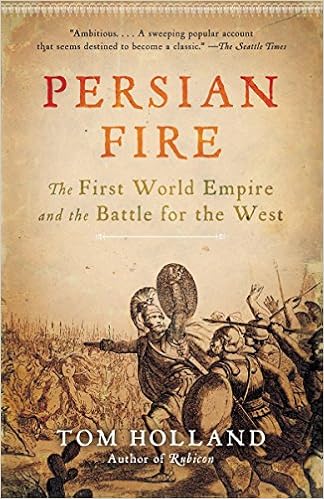 Tom Holland started off writing vampire novels but moved on to non-fiction and has since written an excellent history of the Persian invasion of Greece, several books about the Romans, one about Islam and one about the slow rise of Christian Europe that started around 1000 AD ; in retrospect at least, all his non-fiction books have had a hint of Christian Western European apologetics (some of it is probably well deserved reaction to the excesses of contemporary wokeness) but this book makes it explicit. Dominion is well written and well researched and he does make a lot of effort to include the nasty bits of Christian history, but in the end it IS a work of Christian apologetics, albeit from a modern liberal angle. Tom Holland’s basic thesis is that almost the entire set of “humanist” values modern liberals take for granted (universal human equality and dignity, separation of church and state, care for the weaker sections of society, suspicion of power, privilege and wealth, condemnation of slavery, cruelty and oppression, valorization of the weak and downtrodden, etc) is purely Christian in origin. No other civilization or culture had these values (or at least, foregrounded them in quite the same way as Christianity). For example, while some thinkers have always been unhappy with slavery, the abolition of slavery was a Christian effort through and through. True, the slave owners had their own Biblical justification for slavery, but those who opposed them did so on the basis of their Christian beliefs, and they won the argument.
Tom Holland started off writing vampire novels but moved on to non-fiction and has since written an excellent history of the Persian invasion of Greece, several books about the Romans, one about Islam and one about the slow rise of Christian Europe that started around 1000 AD ; in retrospect at least, all his non-fiction books have had a hint of Christian Western European apologetics (some of it is probably well deserved reaction to the excesses of contemporary wokeness) but this book makes it explicit. Dominion is well written and well researched and he does make a lot of effort to include the nasty bits of Christian history, but in the end it IS a work of Christian apologetics, albeit from a modern liberal angle. Tom Holland’s basic thesis is that almost the entire set of “humanist” values modern liberals take for granted (universal human equality and dignity, separation of church and state, care for the weaker sections of society, suspicion of power, privilege and wealth, condemnation of slavery, cruelty and oppression, valorization of the weak and downtrodden, etc) is purely Christian in origin. No other civilization or culture had these values (or at least, foregrounded them in quite the same way as Christianity). For example, while some thinkers have always been unhappy with slavery, the abolition of slavery was a Christian effort through and through. True, the slave owners had their own Biblical justification for slavery, but those who opposed them did so on the basis of their Christian beliefs, and they won the argument.
Holland also insists that the most viciously anti-Christian progressive thinkers of the post-enlightenment era also turn out be using Christian values to attack Christianity. When Marx cries out against the oppression of the proletariat or Lennon sings “all you need is love”, they are really being more Christian than most Christians. Since Nietszche thought something similar (that liberalism is “Christianity without Christ”), he gets a lot of positive play in this book, which is a bit ironic, since he also regarded Christianity as something of a disease.

